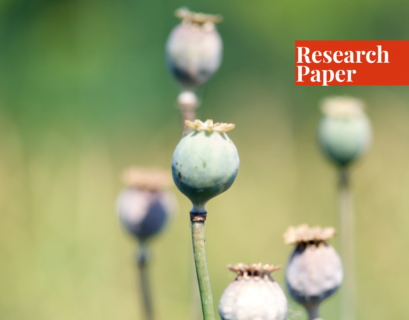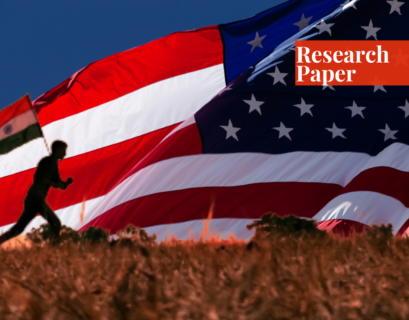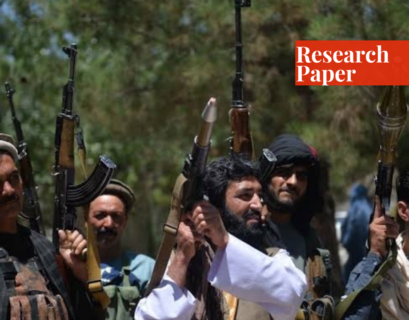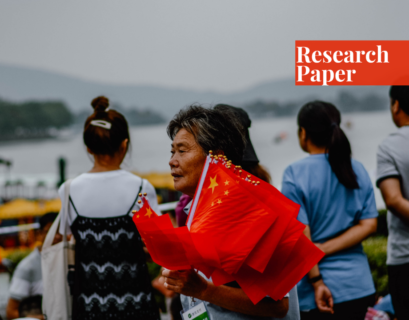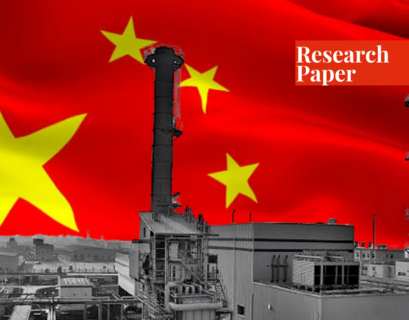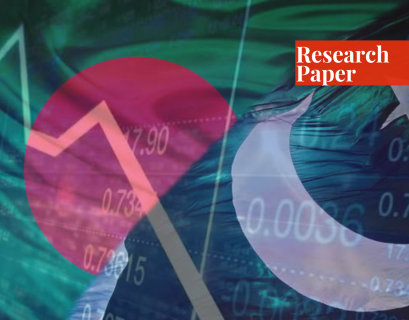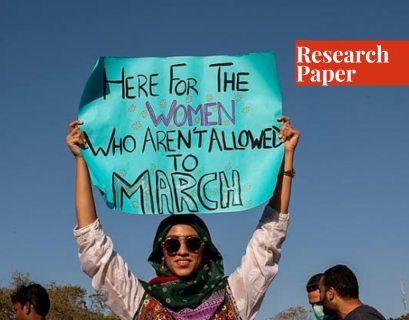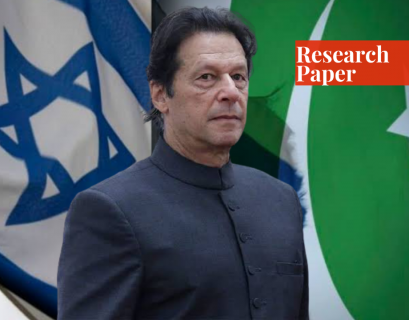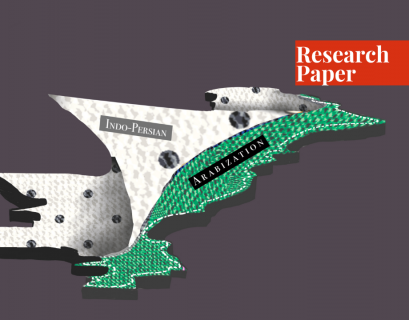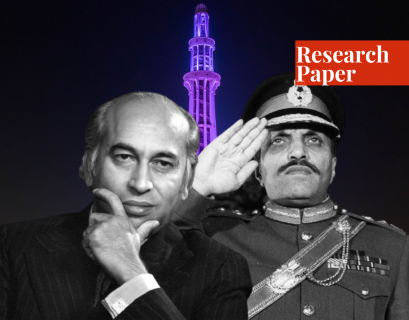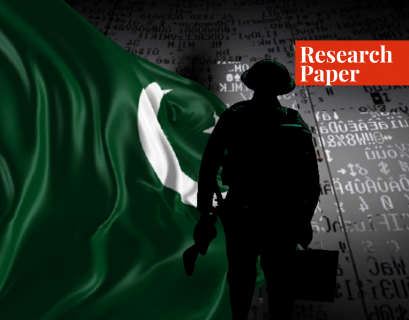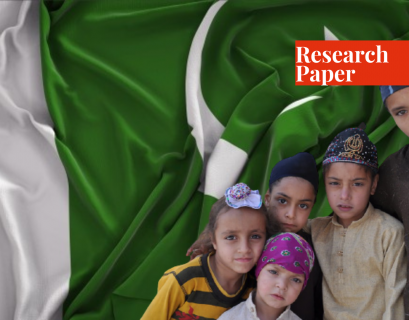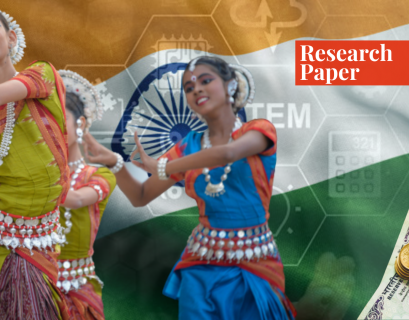The Incessant Opium War in Afghanistan
Afghanistan’s relation to the illegal drug trade can be traced back to the 1980s. Since then, opium cultivation has become an integral part of Afghanistan’s economy and the livelihoods of its farmers. The author, Madiha Rauf, notes that although the US and the previous Afghan governments have introduced measures to reduce opium production and trade, the efforts have been half-hearted. In reality, Afghanistan’s opium trade has not only benefitted the warlords and the Taliban but also the previous regimes. Although the Taliban regime has made promises to eradicate the illegal drug trade, given the state’s dependency on it, it is unlikely to fulfill these promises and the opium war in Afghanistan might not see an end in the near future.
Challenges of Working from Home: Analyzing Engro Fertilizers in the Pandemic
The social and economic challenges introduced by COVID-19 have forced numerous small and large businesses to fold. Yet, despite these challenges, many organizations from different industries have persevered by evolving. The author, Anum Imran Mir, focuses on organizational resilience and addresses what makes a business remain afloat during a global pandemic. Through the primary data collected from the employees of Engro Fertilizers Limited (a Pakistani company operating in the agricultural sector) via questionnaires and interviews, she explains the challenges of working from home and the factors that contributed towards (and hindered) organizational resilience.
Thriving US and Indian Relations: Implications for Pakistan & China
Since the Cold War, the US and India have signed a series of strategic agreements, strengthening their alliance. The US-India nexus stems from the threat of a rising China in the international arena. The author, Muhammad Abubaker, notes that the US has capitalized on the Indian regional aspirations and effectively used India to advance America’s strategic goals in Asia vis-à-vis China. He explains that this strategic cooperation between the two powers has impacted China, Pakistan, and the Asian region as a whole. It has aggravated Pakistan’s security dilemma and forced it out of the American bloc. The insecurity caused by this has compelled Pakistan to strengthen its relations with China and look for an ally in Russia.
Blue-Collar Employability: Building a Strong Foundation with Technical and Vocational Education
Technical and Vocational Education and Training (TVET) is recognized as an important aspect of increasing the employability of workers. However, the author notes that the current model of TVET employed in Pakistan places more emphasis on domain-specific expertise, in an unpredictable world where transferrable skills are necessary for job security. To reform the TVET system he proposes a competency-based approach, along with the incorporation of job crafting behavior and transferrable skills, to be used in TVET in the pre-employment phase. This approach will not only increase the life-long employability of workers but also improve their job security and motivation to work.
Tehreek-e-Taliban Pakistan: How Pakistan Contained the Menacing Insurgency
The paper highlights how the Tehreek-e-Taliban Pakistan (TTP), a terrorist group, lost its momentum. The paper also discusses how the political and military leadership (with public support) contributed to taking decisive action against it. While evaluating the TTP’s behavioral patterns, the author considers case studies on China and Sri Lanka, among others.
CPEC: China’s Soft Balancing Against the United States
The paper deals with China’s ‘soft balancing’ in Pakistan through the China Pakistan Economic Corridor (CPEC) and explains how such has helped limit the influence of the United States in Pakistan after 2015. The author argues that the CPEC is a step towards a more Beijing-led regional order —part of Xi’s Belt and Road Initiative (BRI) and greater ambition of extending his country’s influence — which has been working in China’s favor.
Insanity Plea in Pakistan: An Unsettled Loophole
It would come as a surprise to many that the presumption of innocence is not applicable to those that suffer from insanity. To familiarise the public with the legal dimension, the author explores the precedents that are the foundation of the insanity plea, or otherwise known as the insanity defense. The paper uderscores the importance of reforming the policies and laws related to mental illnesses.
The Need for Strategic Autonomy in Pakistan’s Foreign Policy
Pakistan’s foreign policy choices have been consistently subservient to exogenous factors and demands.
This paper aims to build a case for the introduction of strategic autonomy in Pakistan’s foreign policy and in the pursuit of security.
The palpable shift in global powerhouses has brought a rare moment for Pakistan to reset its security policy and move towards a more autonomous course of foreign policy.
How China Became an Economic Superpower?
China’s economic transformation in the last 40 years has had a huge impact on the global economy. This unprecedented economic scenario has attracted a lot of interest, particularly from developing countries looking to emulate China’s success. The author considers the infant industry model to explain China’s rapid industrialization and subsequent economic rise and explains how China’s long-term approach and facilitative policies have enabled local industries to become competitive worldwide. It also discusses what countries like Pakistan can learn from the Chinese experience with regards to strengthening their industrial base.
Political and Economic Growth of Pakistan Vis-à-vis Bangladesh
The economic and political growth of Pakistan and Bangladesh after 1971 can be seen as a reflection of their political culture. The author, Hurain Sheikh, explains that the political culture of Pakistan and Bangladesh is not new to elitism, nepotism, and corruption. She notes that while both states have a history of political instability, the economy of Bangladesh has flourished as compared to Pakistan. Keeping in mind how Bangladesh has managed to lower its unemployment and poverty rate, and improved its economy, she suggests a few measures to help Pakistan develop.
The Media and Aurat March: Friends or Foes?
On March 8, 2021, hundreds of people in Pakistan’s major cities took to the streets to highlight atrocities against women. This was part of the women’s rights campaign’s biggest mobilization in the country, the Aurat March.
The march took place for the 4th year in a row and was met with controversy yet again. This study explores the media’s role in the movement, and more essentially how the print and digital media covered and portrayed this year’s march.
The author analyses the portrayal on the basis of five themes: women’s rights, feminism, healthcare for women, violence and harassment, and patriarchy — with the background being the Agenda Setting Theory.
Should Pakistan Recognize Israel?
In the wake of the recent normalization of ties between varying Muslim states and Israel, Pakistan was rumored to be following suit. This stirred a debate within Pakistan – with people questioning the pro-Palestinian stance, and the rejection of Israel. The author discusses how Pakistan should continue to maintain the traditional policy towards Israel, and how it would be inadvisable to pursue normalization for limited gains.
The Arabization of Pakistan: Shedding its Indo-Persian Roots
How is it that a land thoroughly washed in the Indo-Persian culture, has now become a follower of Arabization? The article explores the ways in which Arabization has infused itself into Pakistan’s culture and society, gradually effacing its Indo-Persian roots. It also analyzes the impact of the cultural shift on Pakistan’s sociopolitical landscape.
Administrative Reforms in Pakistan: The Past, Present & Future
The article explores the administrative reforms in Pakistan from the time of the pre-independence era, and, in light of the present difficulties faced by the executive branch, suggests several recommendations that could address the faults in the system. While continuing to maintain its main role as a provider of public goods, the state will be expected to provide regulatory standards and maintain quality assurance to ensure that non-state actors can also provide high-quality services to the citizens.
Hybrid Warfare and its Implications for Pakistan’s National Security Strategy
Hybrid warfare is a unique blend of conventional and non-conventional methods of war. Pakistan has endured the constant threat of hybrid warfare since its inception – long before the term even came into existence. To maintain its defense, Pakistan has begun to familiarize itself with such propaganda.
The Marginalization of the Sikh Community in Peshawar
Over 60,000 Sikhs are living in Pakistan – most of them in KPK and surrounding areas. As a minority, the community faces a plethora of problems such as bullying, harassment, security threats, impediments in conducting business, obtaining an education, getting subsidized healthcare, and even registering themselves as citizens of Pakistan.
Nation Branding: India and its Public Diplomacy
The aim of this research paper is to critically appraise the initiatives of public diplomacy undertaken by the Indian government to enhance its tarnished image in front of the international community.
